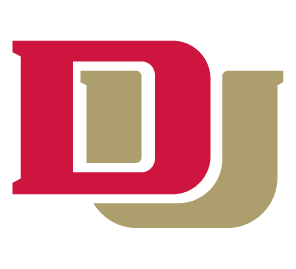Master’s Concentration
Health Data Informatics and Analytics: Master’s Degree
Use data to design solutions to current healthcare industry issues. You’ll learn how to organize projects and formulate strategies for solving business and research challenges. Sharpen skills such as:
- Building plans for ethical research
- Designing database relation diagrams and data usage plans
- Creating SQL scripts for data extraction
- Analyzing issues using the “4P” framework: patients, providers, payers, and population.
Let us help you succeed.
*Indicates a required field.
Top-ranked, career-focused education in a flexible format.
At a Glance
Classes Begin
March 31
Term Length
10 Weeks
Master's Tuition
$835 per credit hour

Top-Ranked University by U.S. News & World Report

Connect with an Advisor
Emily vonSchondorf
Text Me at 303-900-0375
Email Me
Call Me
Schedule an Appointment
Skills You’ll Learn
Appraise healthcare and health industry informatics tools as they relate to healthcare reform
Recommend project designs for healthcare informatics and analytics-based studies
Develop action plans that bring together professionals from IT, clinical, and business to solve healthcare industry challenges
Curriculum
6
Core Courses
5
Concentration
Courses
1
Elective Courses
Featured Instructors
Sample Schedule
Plan out your schedule and determine your preferred timeline for completing your master's degree—finish in as few as 18 months or take up to five years.
Interested in a graduate certificate?
Explore our four and six course graduate certificates in Health Data Informatics and Analytics.
Take a Course Before You Apply
Career Outcomes
Predicted outcomes for graduates of Health Data Informatics and Analytics
Job Titles
Health Information Management Director
Chief Information Manager
Health Information Resource Manager
Clinical Analyst
Informatics Specialist Consultant
Business Intelligence Analyst Salary: National Average
$90,900
(U.S. Bureau of Labor Statistics)
Get Ahead with Career Services
One-on-one career coaching and mock interviews
Job database dedicated to DU students and alumni
Résumé and cover letter guidance
Hear from Our Students
Theme: Job Satisfaction
Health Informatics at the University of Denver
Flexible Online Classes
We understand the demands of balancing work, friends and family, and school can be challenging. That's why at University College, you can complete your program entirely online. Our online learning platform makes it easy to work anywhere at any time.
Accreditation
Higher Learning Commission
University College programs maintain the highest level of accreditation offered by The Higher Learning Commission, one of the regional accrediting bodies recognized by the federal government. The University of Denver and all of its academic programs are regionally accredited by this commission, and regional accreditation is the highest standard for universities in the United States.
HIMSS Organizational Affiliates
The HIMSS Academic Organizational Affiliate program shares industry knowledge and educates our students on critical issues in health information and technology by offering complimentary student memberships to HIMSS and other key benefits.
spacer
Curriculum Alignment
To ensure our programs meet industry needs, the curriculum is closely aligned with national organizations such as the American College of Healthcare Executives and Medical Group Management Association, as well as local organizations such as the Denver Medical Study Group.
Take the Next Step








